
20 minute read
Christmas, Candlelight & You Historic Washington State Park
Photos courtesy of Arkansas Parks, Heritage and Tourism.
Christmas & CANDLELIGHT & You!
By JOE DAVID RICE
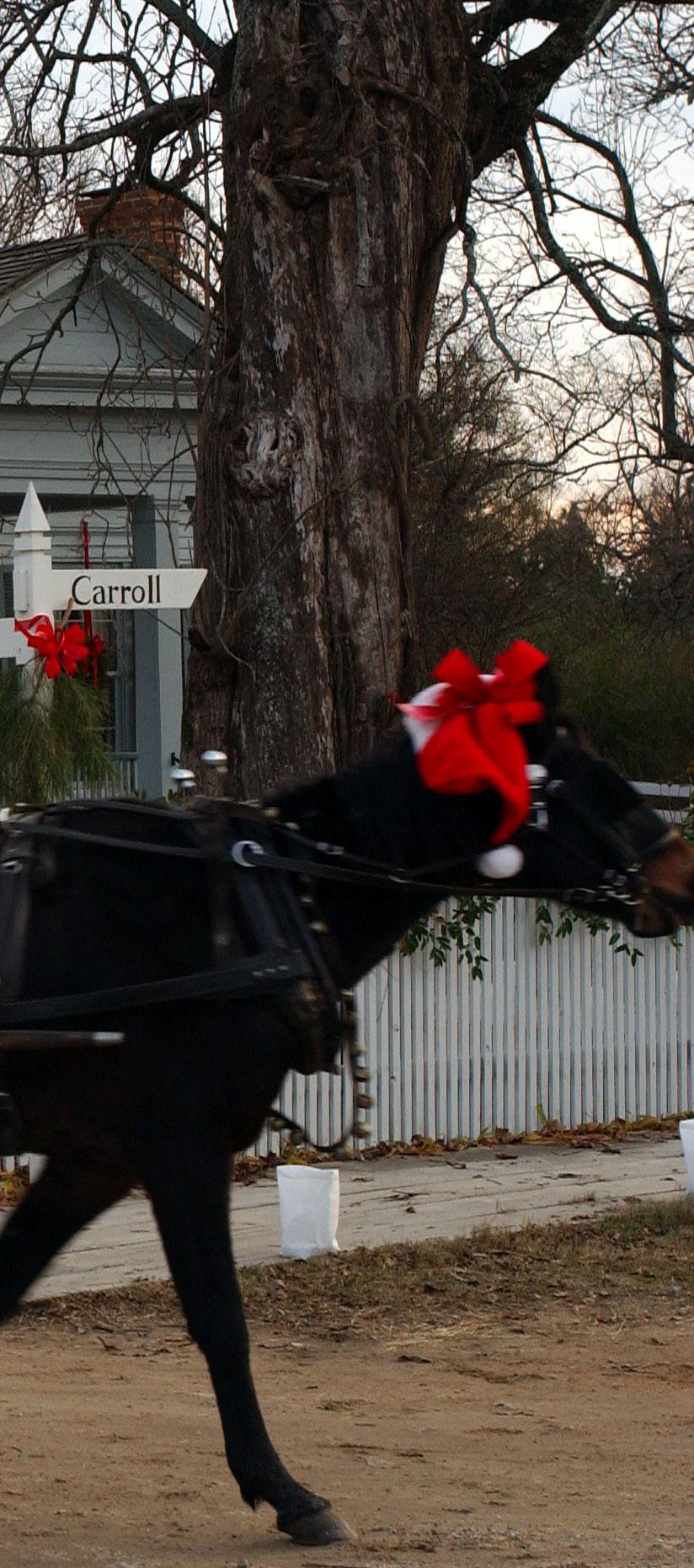

At this year’s Christmas & Candlelight festival enjoy history and holiday tradition. Christmas & Candlelight features decorations from nearly two centuries.

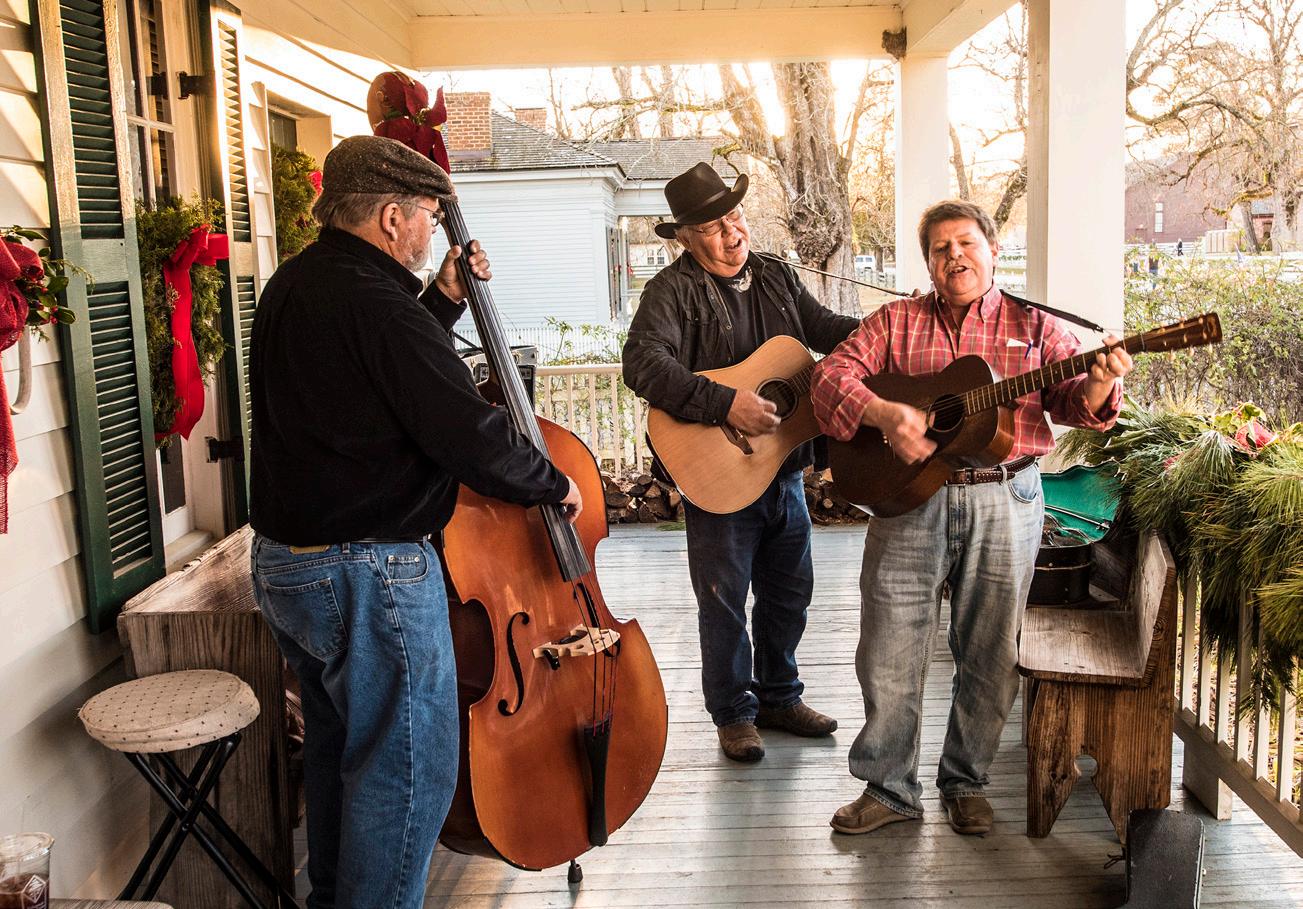
December is here, finally. You survived Black Friday and then Cyber Monday, but now the chaos surrounding Christmas is only weeks away. Maybe it’s time for a break. Perhaps something a lot less commercial and a little bit more charming this holiday season might sound appealing?
Here’s a suggestion: participate in the 36th Annual Christmas & Candlelight festival at Historic Washington State Park in southwest Arkansas. The 110-acre park, a former pioneer settlement and trading post dating back to 1824, features 54 period buildings, all excellent examples of popular architectural styles of the 19th century American South. Stroll down the plank board sidewalks through 2,000 luminaries from one fabulous home to the next, enjoying festive holiday decorations that would have been used two centuries ago. And pose for a family photograph at the base of the Royston House Magnolia, a beautiful specimen planted in 1839 by Grandison Royston near his law office. Whether or not it’s the largest in Arkansas remains in dispute.
“Our Christmas & Candlelight is a super fun event that’s absolutely gorgeous,” says Park Superintendent Pam Beasley. “It’s
Gift shops will also be open to visitors during the 36th annual Christmas & Candlelight festival.
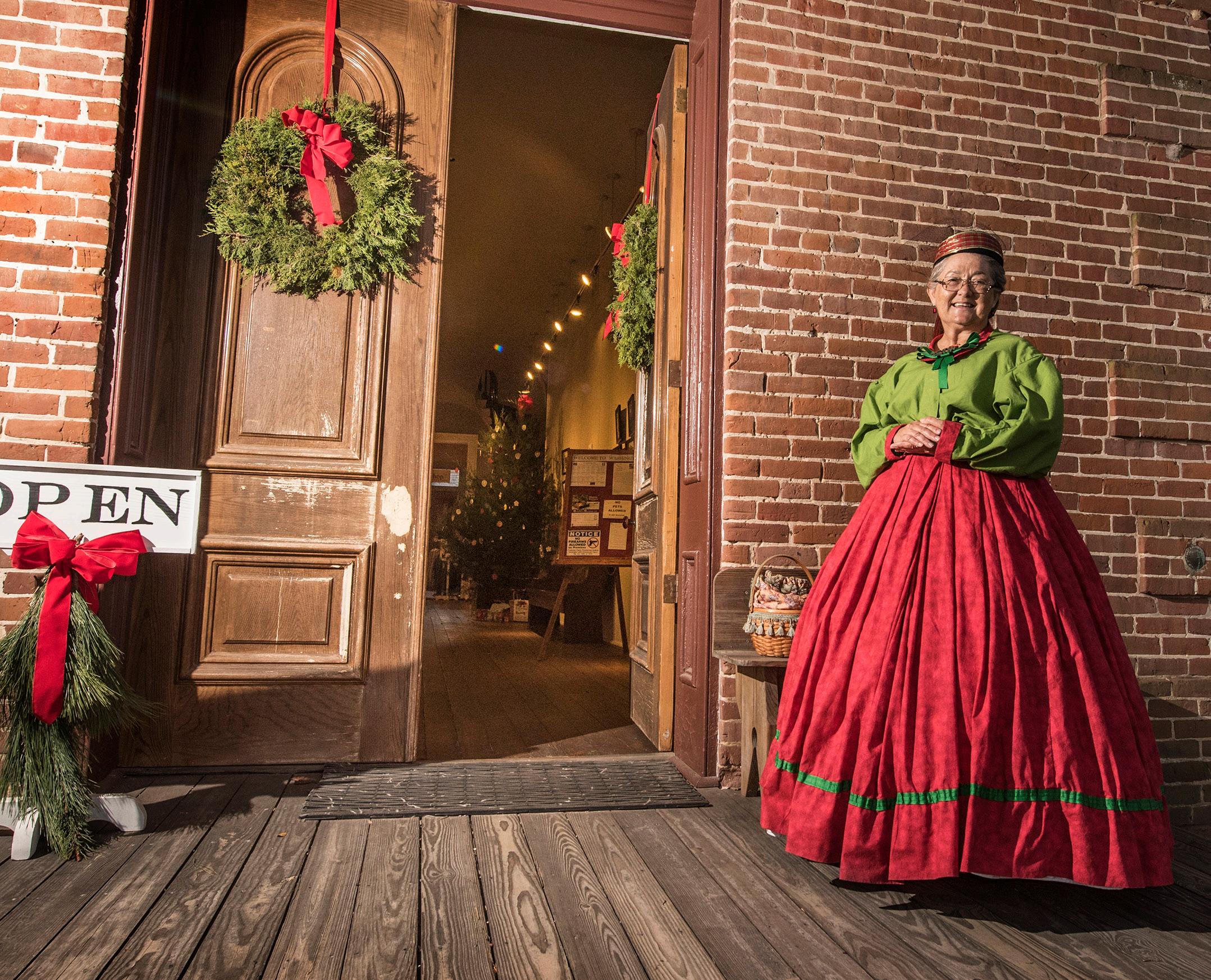
the most beautiful time of the year for this special place.”
Beasley adds that musicians in costumes appropriate to the era will be performing throughout the community of 180 residents. Visitors interested in entertainment of that period will enjoy the “called” dances, and some may even be asked to participate. Not familiar with 19th century dances? Don’t worry; the caller will describe each dance and walk
novices through the steps. Apple cider will be Washington, Arkansas is the birthplace served at the dances, and traditional Southern meals will be available at the Williams Tavern of the Texas Revolution. It also served for (circa 1832). Folks eager to do some last-minute a short time as the state’s Confederate Christmas shopping will have a couple of options. The gift shop in the park’s visitor center stocks cookbooks, reticules (small purses), capital during the Civil War. old-timey toys, jewelry, pottery, herbs and an assortment of history books. A variety of unique gift ideas, to include key rings, candelabras, and candle sticks manufactured at the park, are also available from blacksmith Jerry Ligon. Among the favorite experiences offered to visitors during the day’s events are surrey rides through Washington. Priced at $8 for adults and half that for children, the horse-drawn carriage outings provide memorable photo ops for all. Christmas & Candlelight takes place Dec. 9-10 this year from 1 p.m. to 8 p.m. Tickets may be purchased at the visitor center and run $10 for adults and $6 for children (6 to 12 years of age). Historic Washington State Park, conveniently located just off Interstate 30, is about 10 miles northwest of Hope. For those unfamiliar with Historic Washington, a little background on this fascinating place might be in order. Situated on the celebrated Southwest Trail, the town was established on the site of the Ebenezer Campground Revival. It soon became a prominent commercial center in that corner of the state, and has been described as “one of the most highly civilized communities in early Arkansas.” Stephen F. Austin, among others, did some serious land speculation in the area back in the day. The local blacksmith, James Black, produced what many authorities consider the finest hunting knives ever made, knives that also developed a reputation for coming in handy during duels. Black sold his first one to James Bowie, and the tempered steel knives Black made in the same style have been called Bowie knives ever since.

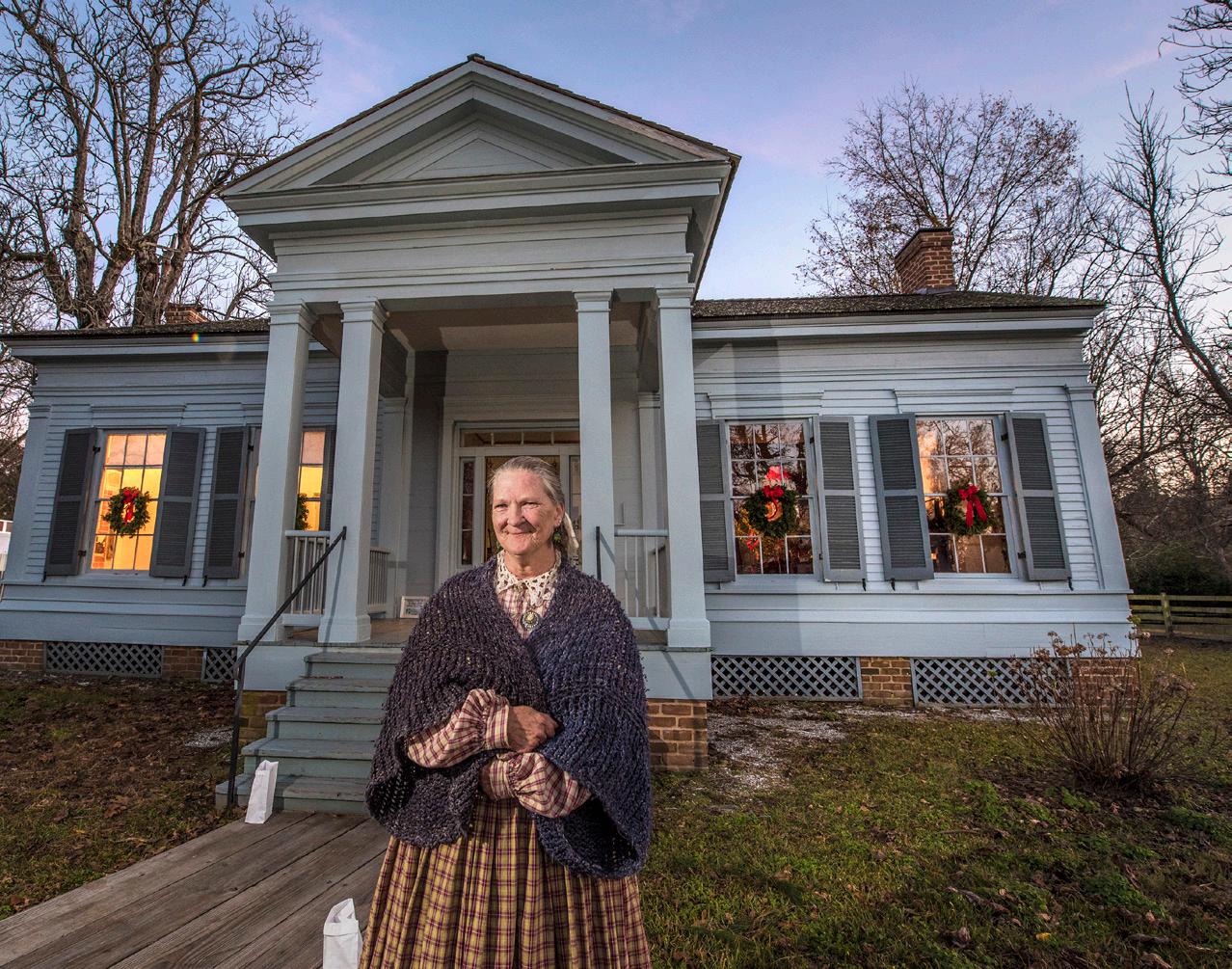
A lesser-known aspect of Washington is the significant role it played in the fight for Texas independence. For example, George William Featherstonhaugh, a British-born scientist hired as the country’s first geologist, filed this report from Washington during his 1834 survey of Arkansas:
I was not desirous of remaining long at the place. General Houston was here, leading a mysterious sort of life, shut up in a small tavern, seeing nobody by day and sitting up all night . . . There were many persons at this time in the village from the States lying adjacent to the Mississippi, under the pretense of purchasing government lands, but whose real object was to encourage the settlers of Texas to throw off their allegiance to the Mexican government.
A century or so later, Dr. Walter Scott McNutt had this to say about Sam Houston’s ties to Washington, Arkansas:
Sam Houston finally took up his abode in a small upper room of an inn in the town of Washington, Arkansas. He stayed there for several months and furnished the basis of community gossip during his stay and long afterward. Strange visitors came to see him at all times of the night as well as day, important looking men, common men, rich men and poor men. He never talked with any one about what he was doing, and rarely appeared for meals . . . This enigma to the town disappeared just as mysteriously as he had entered it. But later it was discovered, through men who knew him, that the Texas Republic was born in the upper room of the little Arkansas inn, and that Sam Houston had been all along planning the liberation of a great people.
In short, Washington, Arkansas, is the birthplace of the Texas Revolution. It also served for a short time as the state’s Confederate capital during the Civil War, hosting Arkansas’s government during the 1863-1865 period after Little Rock fell to Union Forces. The building that housed state officials in that two-year span still exists and is open for tours. The war’s conclusion, followed by placement of the Cairo and Fulton Railroad several miles south of town, led to Washington’s gradual decline
Given Washington’s background, it’s no surprise that the Arkansas General Assembly appropriated funds as far back as 1929 to preserve the town’s history. Officially established as a state park in 1973, it’s been called Arkansas’s version of Colonial Williamsburg. Washington is definitely worth a visit, and the 36th Annual Christmas & Candlelight festival offers a wonderful opportunity to spend a few pleasant hours far removed from the pressures of modern society.
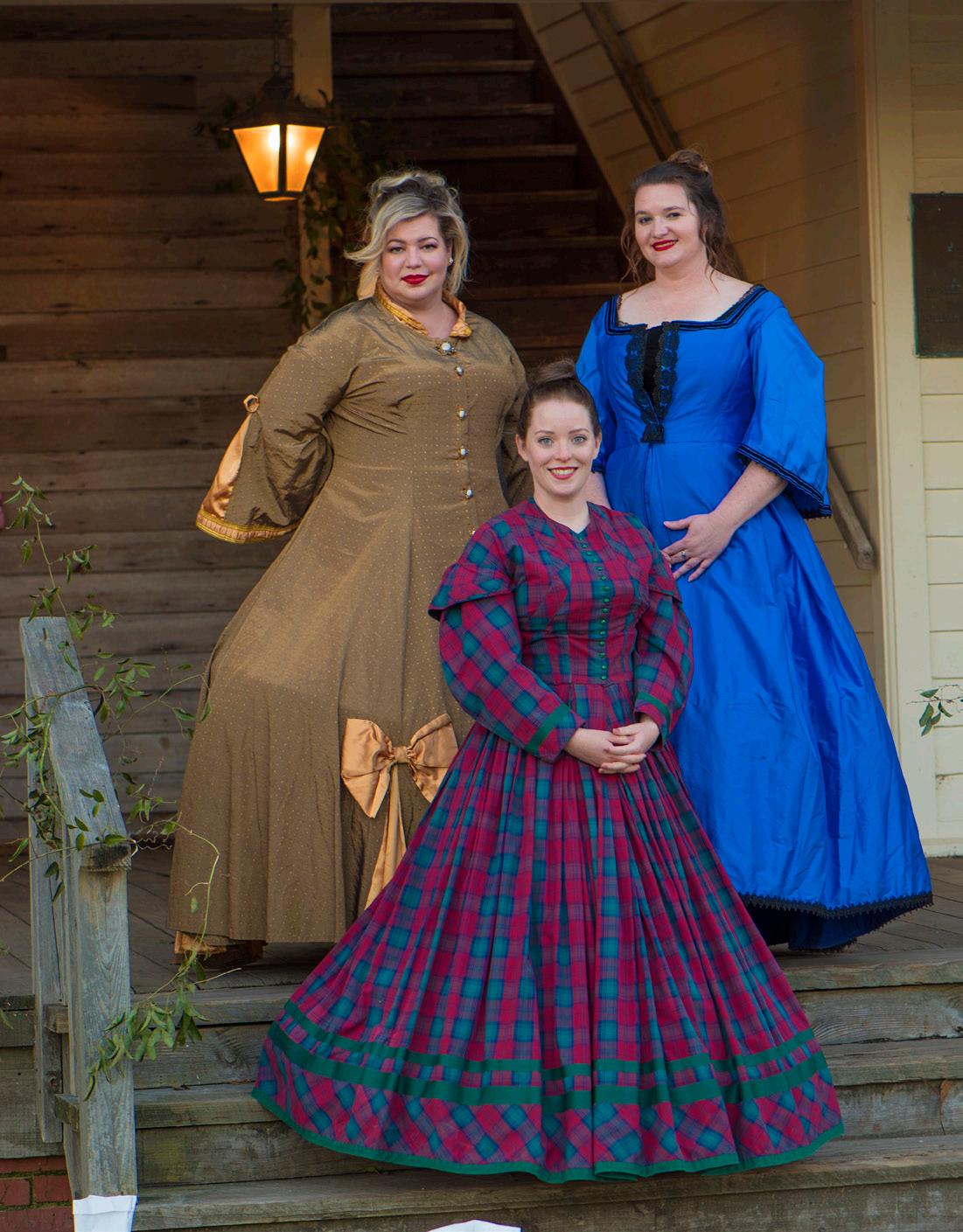

Nonprofits across Arkansas work year-round to improve the lives of those in the Natural State. Some are tackling food insecurity or taking care of our unsheltered neighbors. Others are investing in the healing and development of Arkansas youth. Still others are advocating for aging adults or those with disabilities. No matter what their mission is, the leaders in charge of these organizations set a strong example for the rest of us. Frankly, they give us hope for what Arkansas is and can be. While we get to know these “Leaders in Hope” a little better, they’ll also offer us ways to support their work. Whether it’s time, money or just spreading the word, the goal of a better future is one we can all contribute to.
Brian Burton
CEO | ARKANSAS FOODBANK
As the largest hunger relief organization in the state, the Arkansas Foodbank plays an integral role in the fight against hunger. Created in 1984, and a member of the Feeding America national network since 1989, the nonprofit connects people and resources in order to provide dignity and hope to those in need.
A native Arkansan, CEO Brian Burton joined the Arkansas Foodbank in October of this year after serving as CEO of Three Square Foodbank in Las Vegas, Nevada for 11 years. Burton was eager at the chance to return home and take on new challenges with the Arkansas Foodbank.
Arkansas ranks second in the country for food insecurity. One in seven adults, and one in five children, are at risk of going hungry every day. The Foodbank serves 33 counties, including many in the Delta region – one of the most underresourced areas of the country.
“Without proper nutrition, children can’t learn and grow, parents can’t work and senior citizens are at risk for increased health-related issues,” Burton says. “We work every day in collaboration with supporters, volunteers and our member partners to ensure those we serve have consistent access to nutritious food.”
The Centers was founded in 1884 by Elizabeth Latta Mitchell and is the oldest continuously operating non-profit in Arkansas. In the 138 years since, The Centers has been committed to meeting the needs of individuals through integrated care that promotes physical, emotional and social wellness for all. President and CEO Melissa Dawson joined The Centers in 1994 and held several positions before taking on the role of CEO in 2017. Dawson takes inspiration from her predecessor, the late Doug Stadter, and welcomes the challenges that come with meeting the needs of the community, often with limited resources. “As a non-profit organization, it is our duty to be inventive and adaptive because everyone deserves access to high-quality care,” Dawson says. “One of the most rewarding parts of my job is celebrating the incredible work of our staff who are integral to the successful outcomes of so many individuals.” The Centers works to ensure low income, uninsured and underinsured people have access to quality mental and behavioral services. Services include child and adolescent residential care, therapeutic foster care, day treatment programming, substance use treatment programming, prevention services, outpatient counseling and a free crisis hotline. The Centers also houses a nationally-recognized human trafficking treatment program and has recently opened an adjacent primary care clinic and pharmacy.
One Way to Support the Arkansas Foodbank:
• Donating: A $1 donation can provide food for five meals. Give once or on a recurring basis online, by phone or by mail.
ARKANSAS FOODBANK
4301 W 65th Street | Little Rock | 72209 501.565.8121 | arkansasfoodbank.org
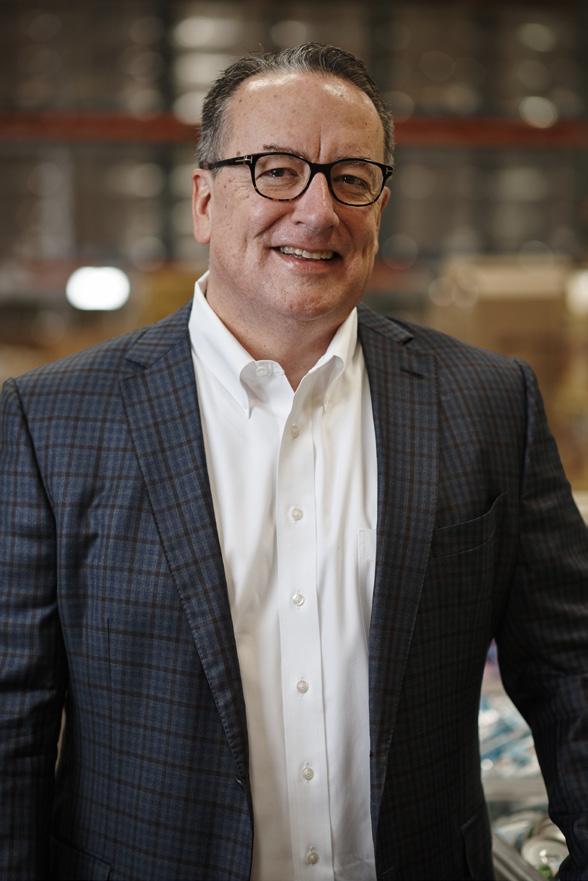
Melissa Dawson
President & CEO | THE CENTERS
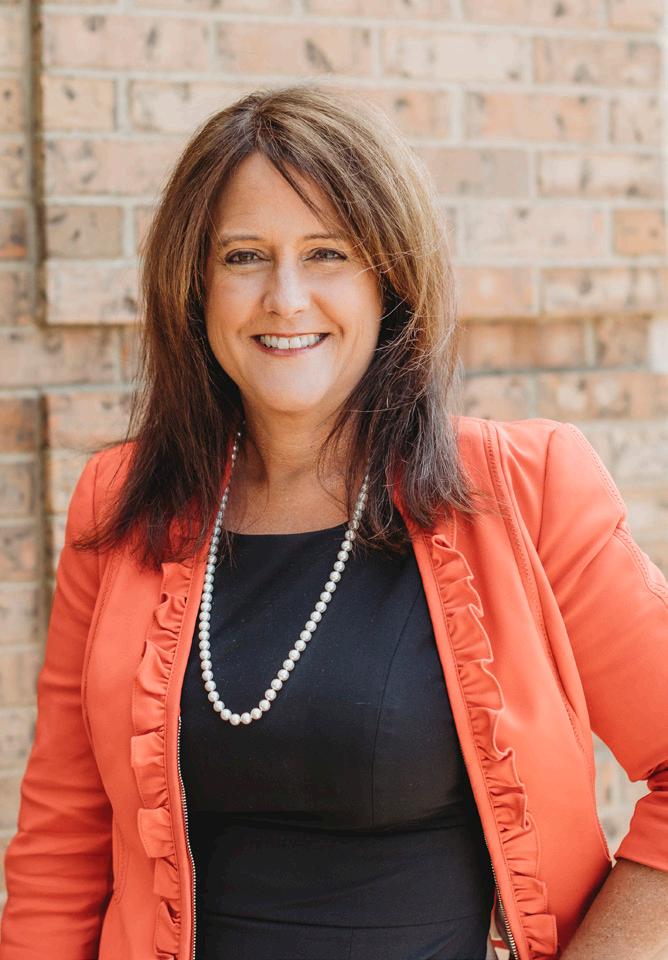

One Way to Support The Centers:
• Donating: Venmo (@TheCentersArkansas); give online, by phone or by mail; shop The Centers’ Amazon Wish List
Ron Ekstrand
CEO | EASTERSEALS ARKANSAS
Founded in 1944 by Virginia Armistead, Easterseals Arkansas was created with the belief that those with disabilities deserve the opportunity to learn, grow and reach their full potential. The organization has evolved and expanded over the years, and today, Easterseals Arkansas is a statewide provider of home- and communitybased services for people with intellectual and developmental disabilities and their families. The mission of Easterseals Arkansas is to empower all individuals with disabilities to live, learn, work and play in their communities. In addition to its 42-bed residential children’s rehabilitation center, Easterseals services include high-risk infant monitoring, outpatient therapy services, developmental preschools, a private K-12 school, transition from school services, employment support, community living and housing. Ron Ekstrand is only the fifth person to serve as CEO in the organization’s 78-year history. After 25 years working at for-profits in insurance, managed care, financial services and consulting, he was recruited to serve as an executive at a nonprofit that would become an Easterseals affiliate in Missouri. Ekstrand joined Easterseals Arkansas at the end of 2019. “I love applying my knowledge and experience to help build capacity, culture and infrastructure for organizations that truly make a difference in the lives of those they serve,” Ekstrand said. “The Easterseals Arkansas mission resonates with my own values and has a rich history of community support and impact.”

Founded in 2011 by Christie Erwin and Caryl Watson, Project Zero was created to pick up and expand strategically where other adoption coalitions across the state had left off. As a long-time foster and adoptive parent herself, Erwin has seen firsthand the effects that waiting in foster care can have on children.
The goal of Project Zero is to have zero waiting children in Arkansas, and that mission rests on three tenets: raising awareness, building hope in kids while they wait and helping to connect them to forever families.
Project Zero hosts monthly connection events where children and families can interact and get to know one another. The organization also presents the Arkansas Heart Gallery, a collection of photographs of waiting children and teens taken by professional photographers.
Erwin describes the heartbreak that comes with seeing children age out of foster care, but adds that the most rewarding part of her work is seeing children find the right forever family.
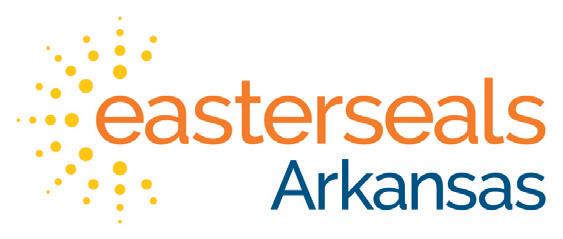
One Way to Support Easterseals Arkansas:
• Volunteering: A volunteer application and more information is available online.
3920 Woodland Heights Road | Little Rock | 72212 501.227.3600 | easterseals.com/arkansas
Christie Erwin
Executive Director | PROJECT ZERO
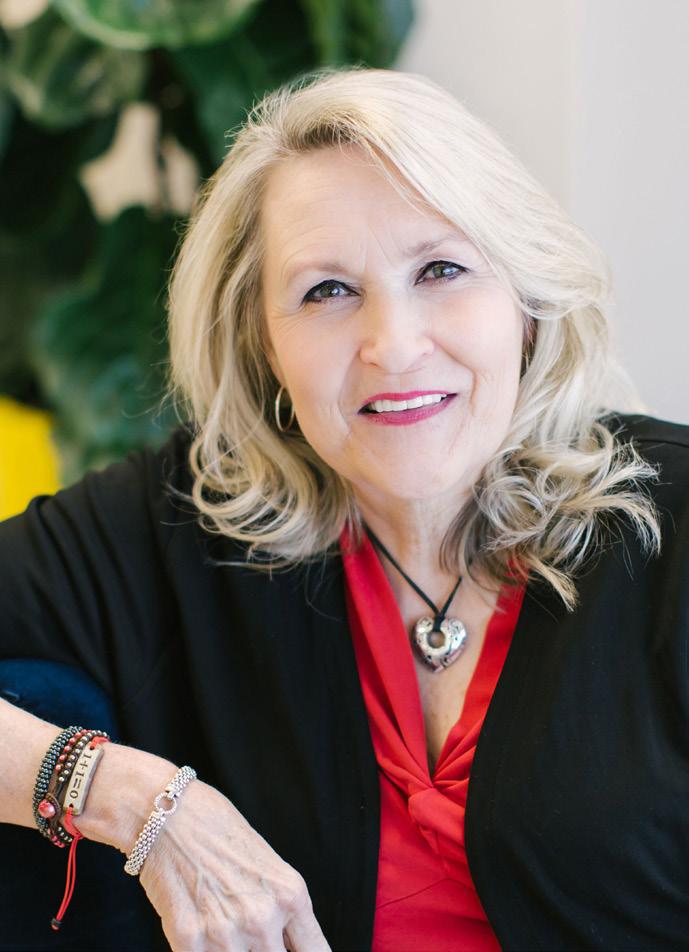
One Way to Support Project Zero:
• Volunteering: Email cara@theprojectzero.org.
Raymond Omar Long
The first Big Brothers program in Little Rock was the work of five area churches coming together to meet the needs of young men in their community. In 1972, Big Brothers of Pulaski County became a full affiliate of Big Brothers Big Sisters of America, and the organization began serving girls in 1983. Growth in areas outside of Little Rock allowed the group to change its name to Big Brothers Big Sisters of Central Arkansas (BBBSCA) in 1998.
Mentorship with Big Brothers Big Sisters takes many forms, all with the goal of providing the role models and access to resources young people need to succeed. One-to-one mentoring includes the titular “Big Brothers and Big Sisters,” where youth are matched with one adult, but youth can also be matched with a couple or family. Other initiatives include matching youth with first responders, group engagement teaching life and socialemotional skills, workplace mentoring and support for program alumni.
CEO Raymond Omar Long joined BBBSCA as a board member in 2020 and stepped down to run the organization’s day-to-day operations in 2021. Long has a vision for a bolder, better and bigger BBBSCA, with expanded services such as academic enrichment, digital and financial literacy, leadership development and career pathways training.
“Mentoring is a proven, cost-effective intervention that unlocks a lifetime of opportunity for those in need of a role model,” Long says. “Mentors inspire, motivate and expose their Littles to a world of possibilities for their lives. There are thousands of young people in Central Arkansas with untapped potential who need the support of an extra adult.”

Ronald McDonald House Charities of Arkansas opened its doors in 1981 to care for families staying far from home while their child received treatment at Arkansas Children’s Hospital. That initial eight-bedroom house provided a much-needed respite and became a home away from home for many. In the years since, the House has only extended its reach.
Today, the House also serves families with babies in the neonatal intensive care units (NICU) at Baptist Health and UAMS. The first Ronald McDonald Family Room in Central Arkansas opened on the NICU floor at UAMS in 2020. In 2009, the organization launched the state’s first Ronald McDonald Care Mobile to provide free dental and oral health care to children across six counties.
CEO Janell Mason began working with the Ronald McDonald House as a volunteer in 2008 and oversaw the construction of a new Ronald McDonald House on the campus of Arkansas Children’s. At three times the size of the old House, it houses 32 families each night, providing them with a comfortable suite and a community of support. The House has a large kitchen, an 80-seat dining room, indoor and outdoor recreation areas, laundry facilities and other comforts of home.
• Volunteering: Apply online to be a Big, or attend an online info session and learn more about the work and hear from current Bigs.
BIG BROTHERS BIG SISTERS OF CENTRAL ARKANSAS
RONALD MCDONALD HOUSE CHARITIES OF ARKANSAS
312 W Pershing Blvd. | North Little Rock | 72114 501.374.6661 | bbbsca.org
Janell Mason
CEO | RONALD MCDONALD HOUSE CHARITIES OF ARKANSAS
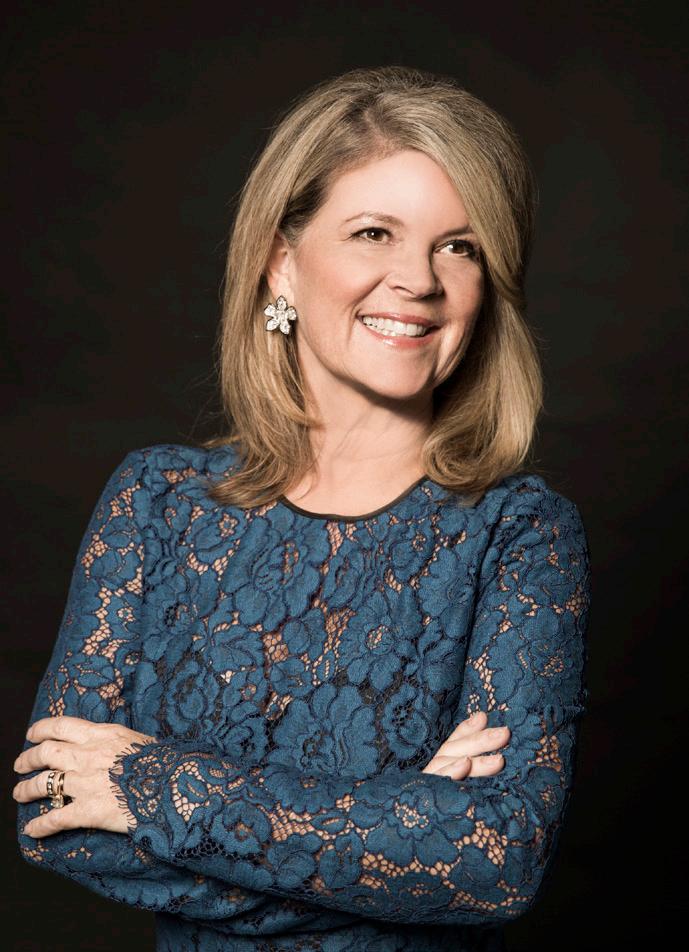
One Way to Support Ronald McDonald House:
• Donating: The House is 100% reliant on donations to keep its services free to families. In addition to monetary gifts, you can provide items on the House’s Amazon Wish List at wishlistwednesday.org.
Luke Mattingly
CEO | CARELINK
CareLink was established in 1979 as Central Arkansas’ Area Agency on Aging. The organization was charged with helping older adults live with independence and dignity in their homes and communities. Over four decades later, the agency now serves 15,000 people per year.
CareLink helps homebound older people receive services that allow them to stay at home as long as possible, avoiding more costly care. The nonprofit helps active older people stay fit, healthy and involved through senior centers, wellness programs and volunteer opportunities, as well as helping family caregivers navigate the maze of available services and care for their aging loved ones.
CEO Luke Mattingly previously worked in the for-profit sector, but served regularly on nonprofit boards. After 15 years of volunteer service, Mattingly was inspired to move full-time into nonprofit work and helping others; he leapt at the chance to join CareLink in 2003.
With inflation impacting expenses and a rapidly-growing 65+ population, Mattingly points to sustainable funding as a challenge that is more critical than ever for CareLink to overcome.

One Way to Support CareLink:
• Donating: 100% of your donation goes to the program of your choice. Give by mail, online or become a corporate sponsor.
P.O. Box 3140 | Little Rock | 72203 501.372.5300 | carelink.org
Elizabeth Pulley
The national Children’s Advocacy Centers (CAC) organization was founded in the 1980s to provide child abuse victims with safe, supportive services and to minimize additional trauma. Children’s Advocacy Centers of Arkansas gives victims access to a variety of services essential to the investigation and healing processes, such as forensic interviews, medical exams, mental health therapy and prevention education. Children’s Advocacy Centers of Arkansas utilizes a collaborative approach where a team of professionals from various agencies works together to help both child and family. The organization promotes and supports the development of centers across the state in order to bring hope and healing to more victims. A Benton native, Executive Director Elizabeth Pulley joined the Children’s Advocacy Centers of Arkansas in 2017 after more than a decade in higher education. Under Pulley’s leadership, the organization has increased services to provide free, direct assistance to more than 11,000 child abuse victims. In 2021, Pulley worked on legislation bringing Arkansas law up to date with other states, created best practices and developed a collaborative response to child abuse. “Child victims would not have access to a variety of services without a CAC,” Pulley says. “No matter a child’s location in the state, they should be able to receive quality services. Every child matters.”
One Way to Support Children’s Advocacy Centers of Arkansas:
• Volunteering: Fill out the online form and get involved with your local CAC.
CHILDREN’S ADVOCACY CENTERS OF ARKANSAS
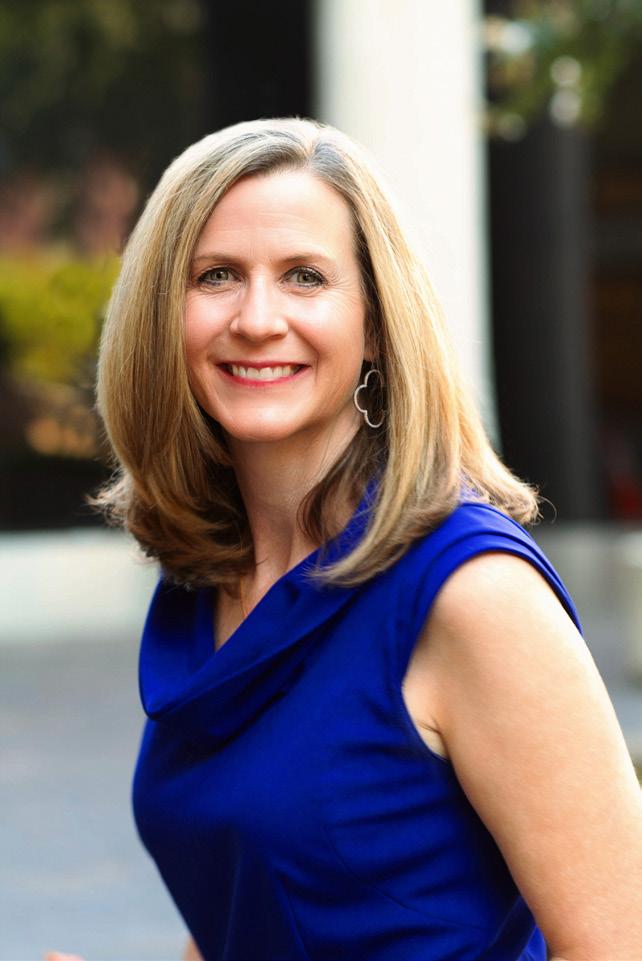
Aaron Reddin
Executive Director | THE VAN
The Van is all about locating and loving our unsheltered neighbors. Founder Aaron Reddin was working in the local shelter system and began to see the disparity between the number beds available and the number of people experiencing homelessness. Reddin took matters into his own hands, loading down his Toyota Yaris with supplies and going out to meet people where they were.
Attention from local media and others getting the word out helped the work take off like a rocket, according to Reddin. “We incorporated the effort 11 years ago and haven’t had time to look back,” he says.
The Van aims to be a consistent mobile resource to those experiencing unsheltered and chronic homelessness in the Little Rock metro area. Those coming to Little Rock from rural areas looking for resources are often stuck outside, because shelters in the city stay at capacity. The Van works to locate and serve the hundreds of Arkansans stuck outside.
In addition to direct outreach in the namesake Van, the organization provides emergency shelters during inclement weather and runs an urban farm to grow food and give work opportunities to the people it serves.
Chronic homelessness poses constant threats to those experiencing it, and Reddin points to the tremendous amount of loss as a huge challenge. “But then,” he adds, “you have the Little Eddies.” This coming February, Eddie will celebrate ten years in his house after more than two decades living under a bridge.
Reddin’s latest project has been bolstering The Van’s mobile social work effort. Putting social workers out on the streets requires a consistent source of funding, and though Reddin admits “we’re not big on asking for support, nor are we much good at it,” monthly donations are the surest way to help the project succeed.
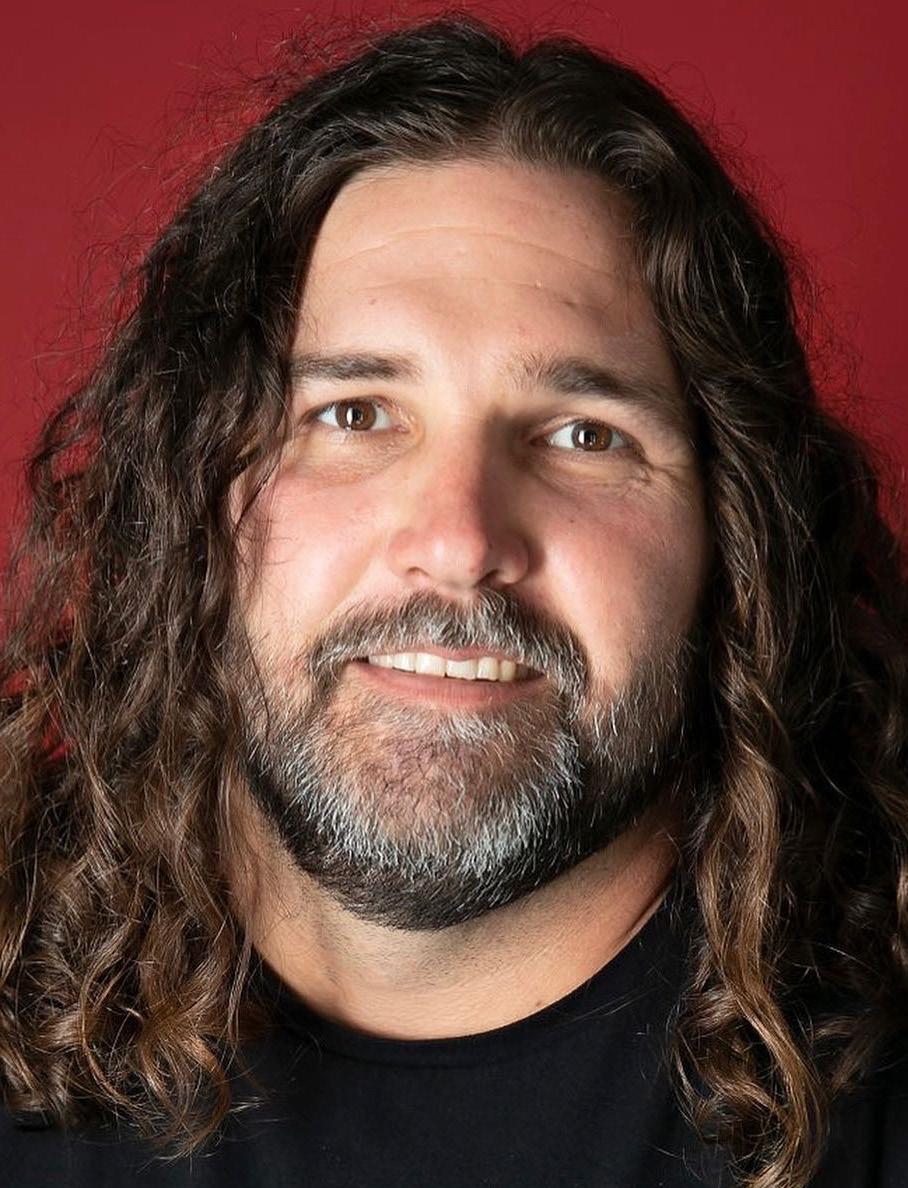
One Way to Support The Van:
• Donating: Set up a recurring donation, donate by mail or order from The Van’s Amazon Wish List at HelpTheVan.org. A list of drop-off donation locations is also available online.
Want to know what’s happening for the weekend?












